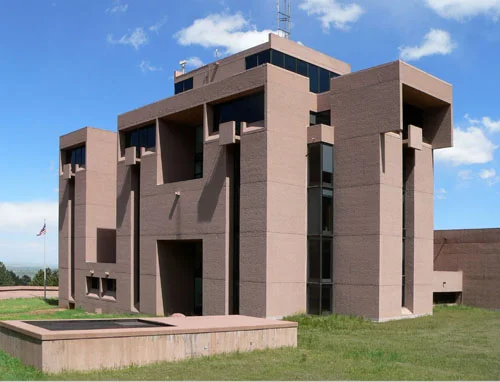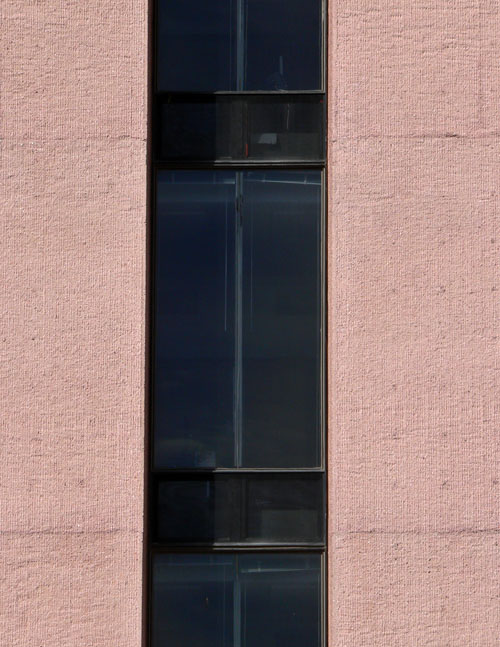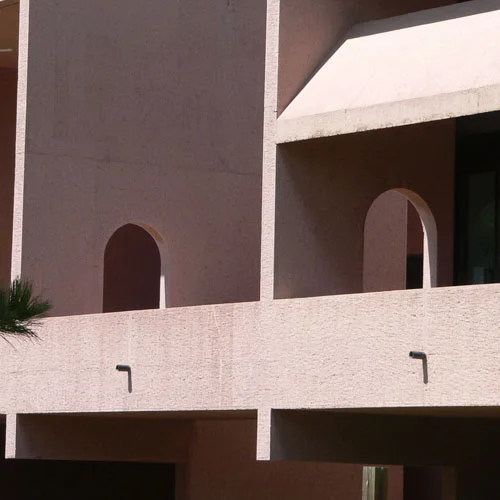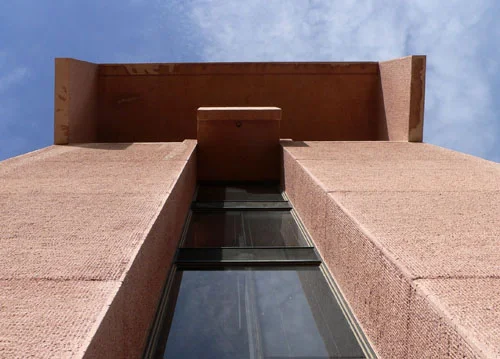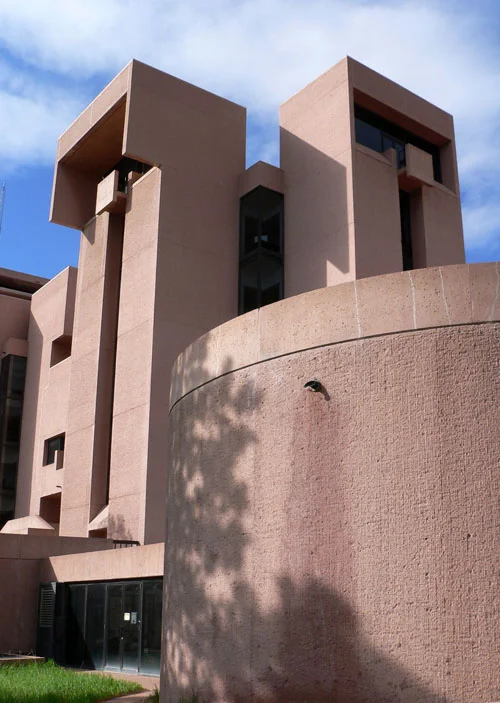This is the follow up post to last week’s thoughts on I. M. Pei and NCAR. In honor of Pei’s recent passing, I thought I would revisist some of the posts on NCAR. This is is Part 2:
NCAR and I. M. Pei
(originally published June 3, 2010)
last week or so I posted some introductory thoughts on I. M. Pei's NCAR building in Boulder. Today, a few more thoughts on the building:
Pei wanted to make an intentionally scaleless building to abstract the forms in relation to the overwhelming presence of the adjacent flatirons.
He certainly succeeded. Take the odd situation of the windows - using darkly tinted glass and spandrels of dark metal or black glass, the windows are simply slits in the surrounding concrete forms. It is almost impossible to tell how many stories the building is or what is the nature of the spaces inside the forms. These are rendered more as voids rather than windows, similar to Paul Rudolph's Yale A+A building.
Like most Brutalist buildings, this attempt to erase the marks of human scale and occupation works on a large scale but is disorienting in the immediate experience of the building. The building is so relentlessly composed of two materials - concrete and its void - that all of the materials often used to bring another sense of scale and detail - the laps of panels or fasteners, the rhythym of windows and frames, are eliminated. Even Paul Rudolph's Yale A+A Building has some smaller scaled detail, the scallops of the roughly corrugated concrete, although occasionally tearing clothes and smashing shoulders, are about the size of your hand and fingers.
The stark orthagonal geometry can be beautiful. On a couple of occasions where a curve is introduced, like the east approach stair, the interplay of geometry and forms is thrilling. (the same can not be said for the strange, anolomous arched passageways on the west facade)
In the end I can't help but see this building as a bit of the dinosaur that it is. These Brutalist buildings made easy targets for the challenges to Modernism with their cool abstractions and often mean materials. That the legacy of Modernism, forged in a profoundly humanist utopian project, morphed into cold, scaleless, inhuman buildings, is ironically tragic and sad.
NCAR is certainly not a building for the senses and maybe not even for the eye, but rather conceived in the head and held there in its icy Apollonian perfection. It is beautiful, like an idea or Occum's razor, made manifest. And, it was one of the last of its species for a reason.
Standing in either of the publicly-accessible courtyards, the stunning natural setting is held at arm's length - to be viewed, but not participated in. Still, the warm concrete walls are a far cry from the worst of the Brutalist genre, if not exactly welcoming, then at least softer, and easier on the eyes and hands.
So next time you are up at NCAR, instead of rushing off to the Mesa Trail and hiking along the flatirons, stop by the building and take a walk around. To so many people in Boulder "NCAR" means little more than a place to park near a trailhead and some time spent in and around the building, not to mention the work and exhibits inside, is well worth the little dose of culture to mix with the abundant nature of the site.

